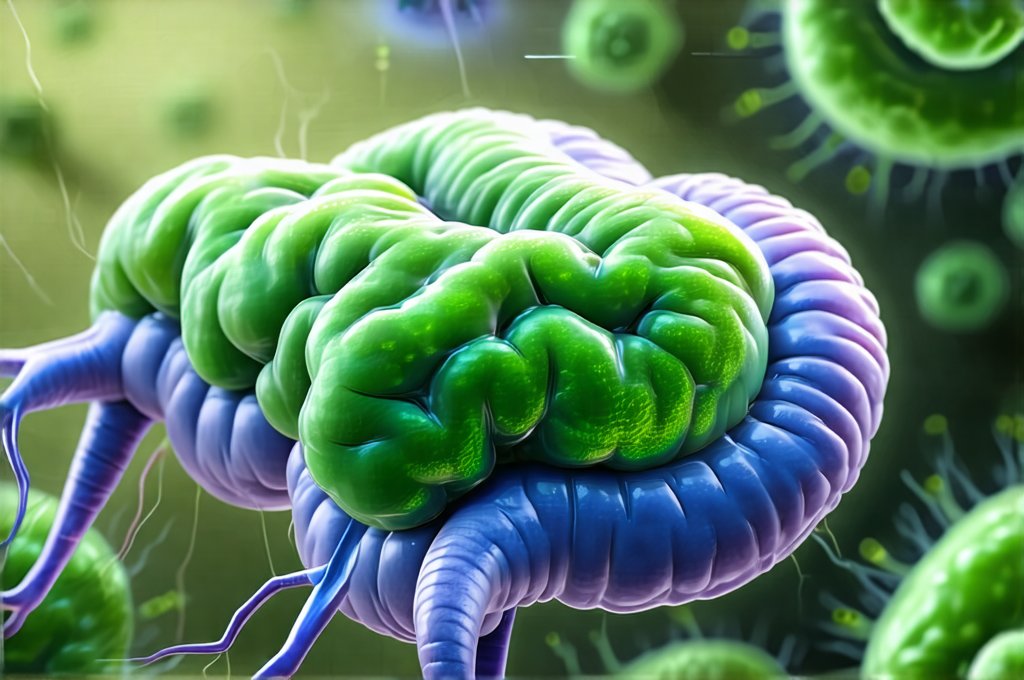The intricate world within our digestive system—the gut microbiome—is increasingly recognized as a cornerstone of overall health. For years, we’ve focused on treating symptoms, often overlooking the root cause residing in this complex ecosystem of trillions of microorganisms. A balanced and diverse gut microbiome isn’t just about digestion; it profoundly impacts immunity, mental wellbeing, hormone regulation, even skin health. When this delicate balance is disrupted, a cascade of issues can arise, signaling that your gut microbiome might be crying out for attention—a reset, if you will. Understanding the signs of an imbalanced gut is the first step toward reclaiming vitality and optimizing wellness.
This isn’t about chasing the latest diet fad or restrictive protocol; it’s about recognizing the subtle (and sometimes not-so-subtle) cues your body provides. Many common complaints we dismiss as ‘just getting older’ or ‘stress’ could actually be linked to a compromised gut microbiome. From persistent bloating and digestive discomfort to mood swings and skin problems, these indicators should prompt us to look deeper. A reset doesn’t necessarily mean drastic changes, but rather informed adjustments that nurture the beneficial bacteria within and restore harmony to this vital internal ecosystem. It is about supporting your body’s natural processes, not fighting against them. You can learn more about whether diet reset is right for you.
Recognizing the Signals: Common Symptoms of Gut Imbalance
A disrupted gut microbiome can manifest in a surprisingly wide range of symptoms, making it easy to overlook its influence. Often, these aren’t isolated incidents but rather chronic, recurring issues that impact daily life. Identifying these signals is key to understanding when intervention might be necessary. It’s important to remember that symptoms will vary from person to person, depending on the specific imbalance and individual sensitivities.
Digestive distress is perhaps the most obvious indicator. This can range from chronic bloating and excessive gas to constipation, diarrhea, or alternating between the two. Irritable Bowel Syndrome (IBS) often has a strong gut microbiome component, although diagnosis requires medical evaluation. Beyond basic discomfort, undigested food particles entering the bloodstream can trigger inflammation throughout the body. Food intolerances that seemingly appear ‘out of nowhere’ are also frequently linked to gut imbalances; your gut bacteria play a role in breaking down foods, and when they’re not functioning optimally, new sensitivities can emerge. If you suspect issues with digestion overnight, consider reviewing digesting properly.
But don’t underestimate the systemic effects. A significant portion of our serotonin—often called the “happy hormone”—is produced in the gut. Therefore, an imbalanced microbiome can contribute to mood swings, anxiety, or even depression. Skin conditions like eczema, psoriasis, and acne are also increasingly recognized as being connected to gut health; inflammation originating in the gut can manifest externally through skin issues. Finally, a compromised gut microbiome impacts immune function—around 70-80% of our immune system resides in the gut—leaving you more susceptible to infections and autoimmune conditions. Understanding gut bacteria imbalance may help understand some of these issues.
Digestion & Elimination Issues: More Than Just Bloat
Persistent digestive problems are often brushed off as normal, but they’re frequently a red flag signaling a deeper issue within the gut microbiome. It’s not just about feeling uncomfortable after meals; it’s about a pattern of disruption that interferes with nutrient absorption and overall wellbeing. – Heartburn and acid reflux, despite dietary changes or medication, can point to imbalances affecting stomach acidity and digestive processes. – Changes in bowel movements (frequency, consistency) are also telling signs; sudden shifts should be investigated.
The key is recognizing chronicity. Occasional bloating after a large meal is normal, but consistent bloating that doesn’t improve with dietary adjustments suggests something deeper is amiss. Similarly, constipation or diarrhea shouldn’t be accepted as part of daily life. These issues impact nutrient absorption, leading to deficiencies and potentially exacerbating other health concerns. A healthy gut facilitates efficient digestion and elimination, leaving you feeling energized and comfortable. If acid reflux seems to be worsening, review acid reflux getting worse.
Consider the role of leaky gut syndrome—a condition where the intestinal lining becomes permeable, allowing undigested food particles and toxins to enter the bloodstream. While still a topic of ongoing research, it’s widely believed that an imbalanced microbiome contributes significantly to increased intestinal permeability. This further fuels inflammation and exacerbates symptoms. Addressing these digestive issues isn’t just about symptom management; it’s about restoring the integrity of your gut barrier and supporting optimal digestion for long-term health.
Mental Wellbeing & Gut Connection: The Gut-Brain Axis
The intricate connection between our gut and brain, known as the gut-brain axis, is a rapidly growing area of research. This two-way communication system means that what happens in your gut directly impacts your brain—and vice versa. An imbalanced microbiome can disrupt this delicate communication, leading to a variety of mental health challenges. – Mood swings: Fluctuations in mood and emotional instability may be linked to imbalances affecting serotonin production. – Anxiety and depression: The gut microbiome influences neurotransmitter synthesis; disruptions can contribute to feelings of anxiety or sadness.
The gut produces numerous neurotransmitters—chemical messengers that regulate mood, sleep, and cognitive function. A healthy microbiome supports optimal neurotransmitter production, while an imbalanced one can lead to deficiencies and imbalances. Furthermore, inflammation in the gut can travel to the brain, impacting cognitive function and potentially contributing to neurodegenerative diseases. This is why addressing gut health is increasingly being considered as part of a holistic approach to mental wellbeing.
It’s important to note that this isn’t about blaming mental health challenges solely on the gut; it’s about recognizing the profound influence of the microbiome and incorporating gut-supporting strategies alongside traditional therapies. Lifestyle factors like stress management, sleep quality, and diet all play crucial roles in both gut and brain health.
Immune Function & The Microbiome: A Powerful Partnership
Our immune system relies heavily on a healthy gut microbiome to function optimally. In fact, approximately 70-80% of our immune cells reside in the gut! This is because the microbiome acts as a training ground for the immune system, helping it differentiate between friend and foe—beneficial bacteria versus harmful pathogens. An imbalanced microbiome weakens this training process, leaving you more vulnerable to infections and autoimmune diseases.
When the gut microbiome is diverse and balanced, it strengthens the gut barrier, preventing harmful substances from entering the bloodstream and triggering an immune response. However, when the microbiome is compromised, the gut barrier becomes leaky, allowing pathogens to enter and overwhelming the immune system. This can lead to chronic inflammation—a root cause of many health problems. – Frequent illnesses: Increased susceptibility to colds, flu, or other infections suggests a weakened immune system. – Autoimmune conditions: Imbalances in the gut microbiome have been linked to autoimmune diseases like rheumatoid arthritis, lupus, and Hashimoto’s thyroiditis. You might also consider if you need to reset your microbiome.
Supporting your gut microbiome is therefore essential for a robust immune system. This can be achieved through dietary changes (incorporating prebiotic and probiotic-rich foods), stress management techniques, and avoiding unnecessary antibiotic use—which can disrupt the delicate balance of the microbiome. Remember that a strong immune system isn’t about eliminating all germs; it’s about having a well-trained immune response that can effectively defend against threats without overreacting. If acid is affecting your vocal health you may want to review affecting your vocal. Finally, don’t hesitate to talk to family about your needs.


















